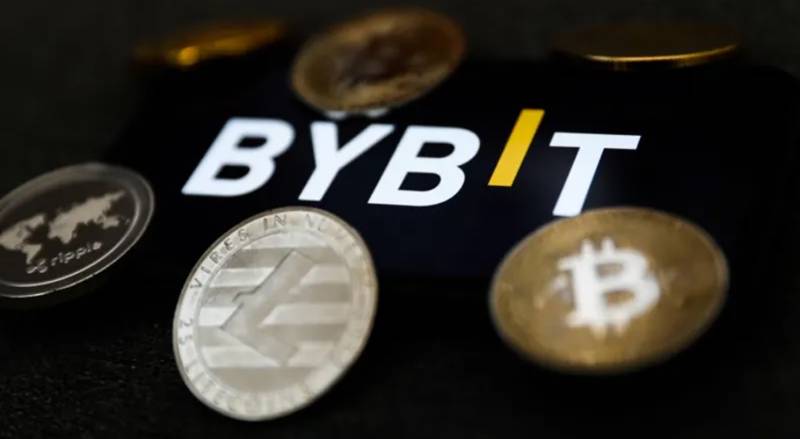 |
|
 |
|
 |
|
 |
|
 |
|
 |
|
 |
|
 |
|
 |
|
 |
|
 |
|
 |
|
 |
|
 |
|
 |
|
Cryptocurrency News Articles
Montana's Bid to Establish a Bitcoin Reserve Hits a Dead End
Feb 24, 2025 at 07:23 pm
House Bill No. 429, which proposed investing state funds in Bitcoin, stablecoins, and precious metals, failed to pass a second reading in the state's House of Representatives.

Lawmakers in Montana have rejected a bill that would have authorized the state to invest a portion of its funds in Bitcoin, dealing a blow to efforts to include the cryptocurrency in U.S. state reserves.
House Bill No. 429, which proposed allocating state money in precious metals, Bitcoin, and stablecoins, failed to pass a second reading in the state's House of Representatives on Thursday. The bill was voted down by a margin of 41-59.
The bill would have established a special revenue account for investing in assets like Bitcoin, precious metals, and stablecoins. It proposed a strategic allocation of $50 million by mid-2025.
If passed, the legislation would have made Montana one of the few U.S. states to formally hold Bitcoin as a reserve asset. Several states, including Utah, Arizona, and Oklahoma, have expressed interest in the move.
However, the bill faced opposition within the House, particularly from Republican lawmakers, many of whom expressed skepticism about investing taxpayer money in Bitcoin.
Representative Jane Gillette voiced concerns about the bill’s lack of clarity, stating, “I am not comfortable with this bill and I am definitely not voting for it as a fiscal conservative. I don’t think the bill clearly articulates enough what that money is going to be spent on.”
Representative Steven Kelly had similar concerns, calling Bitcoin “way too risky” as an investment for public funds. He stated that the House's responsibility is to protect taxpayer money, not speculate on volatile assets.
Another Republican lawmaker, Bill Mercer, was also against the proposal. “Taking the hard-earned money from workers across the state and speculating on it is not the right way to go. So, I am gonna be a ‘no’ on this,” he said.
The bill initially had the backing of Montana's House Business and Labor Committee, but this support wasn't enough to carry it through the full House vote.
Despite efforts from Bitcoin-friendly lawmakers, the concerns over risk and accountability ultimately led to its rejection.
While this legislative effort failed, it's unlikely that Montana's exploration of Bitcoin as a reserve asset will end here. Other states are actively considering similar initiatives, and the conversation around digital assets as a strategic financial tool continues to gain traction.
Dennis Porter, CEO of the Satoshi Action Fund, remained optimistic about the growing interest in Bitcoin reserves across the U.S. He noted on X (formerly Twitter) that his team had been working closely with lawmakers to push forward a “Strategic Bitcoin Reserve” policy.
Even though this particular bill was struck down, Montana's involvement in the broader Bitcoin conversation signals a shift in how states are approaching digital assets. If market conditions stabilize and Bitcoin gains further institutional acceptance, the state could revisit the idea in the future.
For now, however, the message from Montana's lawmakers is clear: they’re not ready to bet taxpayer money on Bitcoin just yet.
Disclaimer:info@kdj.com
The information provided is not trading advice. kdj.com does not assume any responsibility for any investments made based on the information provided in this article. Cryptocurrencies are highly volatile and it is highly recommended that you invest with caution after thorough research!
If you believe that the content used on this website infringes your copyright, please contact us immediately (info@kdj.com) and we will delete it promptly.
-

- Pepeto (PEPETO): A New Memecoin Contender Emerges as BONK (BONK) Price Deteriorates
- Feb 25, 2025 at 12:55 am
- Since Bonk (BONK) experienced a price deterioration, traders have started checking out alternative memecoin options. BONK’s price stands at $0.000016 while the market experiences a 10.29% reduction which leads traders to seek alternative options.
-

- This Spring's Hottest Crypto Picks: JetBolt (JBOLT), Mantra (OM), Story (IP), Berachain (BERA), Arbitrum (ARB), Worldcoin (WLD), Cardano (ADA), Yellow Ket (KET), AI Companions (AIC), and ai16z (AI16Z)
- Feb 25, 2025 at 12:55 am
- Spring is set to be exciting for crypto, with Berachain (BERA), Arbitrum (ARB), Mantra (OM), and ai16z’s (AI16Z) leading the way. Meanwhile, as Worldcoin (WLD) reshapes digital identity, Cardano (ADA) shines with scalable smart contracts, and Yellow Ket (KET) stands out in AI cross-chain trading, Story (IP) is changing IP rights and AI Companions (AIC) redefines digital companionship.
-

- Pi Coin: Could Binance Be the Next Platform to List the Cryptocurrency?
- Feb 25, 2025 at 12:55 am
- The cryptocurrency landscape is ever-evolving, and the latest buzz surrounds the Pi Network's native currency, Pi Coin. With over 35 million engaged users worldwide, Pi Coin is a digital currency that proponents hope will transform the financial industry by making cryptocurrency mining accessible to the average person.
-

-

-

-

-

-























































